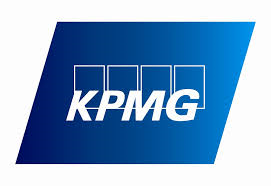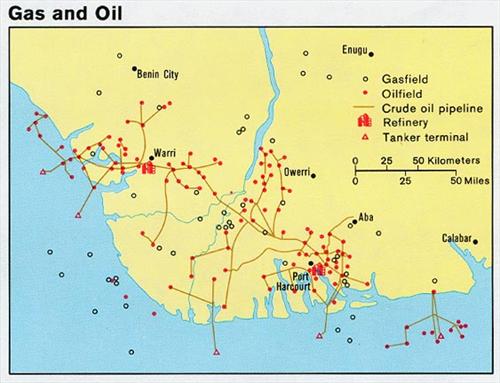
NCC Resources Ltd
Accountancy is a dynamic career option. An accountant is just as important for large companies as it is for sole traders. The field of accountancy is vast, and it can come as a surprise to many people how many different avenues it offers for professional development.
Accounting is the process of producing financial information about a business or an individual. This information is recorded, summarised, interpreted and then communicated to relevant authorities.
But accountants don’t exist in a vacuum. They need skills in the field of information technology, something that is increasingly important in a digital world. An accountant also needs to understand financial law, how to produce and interpret statistics, and other complex information. They must have an in-depth understanding of business and economics.
An accountant will often have knowledge specific to the business sector that he or she works in, such as retail or industry.
TYPES OF ACCOUNTANTS

- AUDITOR: An auditor is an external accountant who checks these financial records for accuracy. This is not necessarily due to wrong doing, but rather is an external process that can streamline how the firm or agency keeps accurate financial records.They also check that a company’s accounting processes are up to standard.
- FINANCIAL ACCOUNTANT: Financial accountancy is the traditional view of accounting, the one that people most associate with the field in general.This is the book-keeping side of accountancy, the columns and ledgers of numbers. An accountant must ensure that financial reports for stakeholders are easy to read with financial information presented clearly.
- MANAGEMENT ACCOUNTANT: Management accounting is similar to financial accounting in many ways. It still involves tracking the company’s financial position, but a management accountant also produces reports that are used internally.
- They provide the financial information that managers need to make business decisions – e.g. they produce financial reports on aspects of the business that are not profitable. They may also include financial forecasts in this report.
- They will produce charts and use other statistical tools to present data in a way that is easy to understand for key decision makers.
- TAX ACCOUNTANT: Tax accounting is all about tax liabilities – in other words, how much tax is owed to the government.Self-employed or employed, we all have tax liabilities. For a company or organisation, the tax picture can be much more complex.Tax rules continually change, and as a tax accountant you are expected to interpret these and apply new rulings to the company’s (or an individual’s) finances.
- FORENSIC ACCOUNTANTForensic accountants are like financial detectives, investigating financial crimes such as fraud and embezzlement.They use accounting techniques to detect and solve financial crimes that can be complex and far-reaching.
- They analyse a range of financial information in order to detect fraud and embezzlement – these types of financial crimes can be very well hidden, lying behind complex and multi-layered accounting.

HOW TO BECOME AN ACCOUNTANT
1. The Degree Route
You don’t need a degree in accounting to be an accountant, but accountants are coming to the market with increasingly sophisticated accounting degrees. Some accountants know which areas they want to specialise in before they begin to practice, and so they take a degree in this area.
An accountancy and financial degree are useful if you want to work as:
-
- An accounting technician
- An Actuarial analyst
- A chartered accountant
- A chartered certified accountant
- A chartered management accountant
- A chartered public finance accountant
- A company secretary
- A forensic accountant
- A stock broker
Accountancy degrees can also be useful for jobs such as:
-
- An accounting technician
- Actuary
- Data analyst
- Economist
- Licensed conveyancer
- Management consultant
- Purchasing or procurement manager
- Retail banker
- Tax adviser
2. The Non-Degree Route
Many people study to become accountants by working alongside private clients and larger companies to gather experience alongside qualifications.
For many employers (and those seeking the help of an accountant) an Association of Accounting Technicians (AAT) qualification is sought-after.
As with qualifications in all sectors and industries, qualifications should have a recognised accreditation process. This shows potential clients and employers that your range of skills and qualifications have value. In other words, you have the accounting, budgeting and analytical skills that they need.
There are many avenues open to you when it comes to gaining accounting qualifications, from attending a local college to online & distance learning accounting courses.
Online courses allow you to study at your own pace, at a time and place which is comfortable for you.
Many people come to accounting from different backgrounds, often studying accounting qualifications whilst working at their ‘day job’.
For example, bookkeepers will often use accountancy for their career progression. Other people who want a change in career will study a new profession at home in their own time.

3. Continuing Professional Development
Financial accounting rules, regulations and guidelines are constantly changing to address our constantly changing world.
The biggest impact on how companies and individuals keep accounts has been the invention of the computer and sophisticated software, followed by the digital revolution.
At one time, a business accountant was responsible for the payroll, physically giving out wage packets at the end of the week.
Now, many of these processes are completed electronically, with an accountant and bookkeeper overseeing the payroll, as well as paying invoices and bills.
Credit control is also an important part of an accountancy role with some businesses. This means they are managing the cash flow into and out of a business.
An accountant will have other professionals who help them complete these tasks, such as a bookkeeper or accounting assistant. Many people use these openings as the first step on the ladder to becoming a fully-fledged accountant, using the experience to back up their qualifications.
Accountants must understand the important of staying relevant with their qualifications, completing courses that see them specialise in widely used software and processes, such as Sage Accounting.
For other useful information you need on careers in accounting, please see full article here.
For more discussions on education and careers, join our forum, HOTPROFORUM
Subscribe free to JarusHub for more tips on careers and education
[subscribe2]
Established in March 2013, JarusHub is a Nigerian information hub with focus on career and management. It is rated Nigeria's most authoritative destination for online career resources. It parades an array of Nigerian professionals who share their career experiences with a view to bridging career information gap and mentoring a generation to success. JarusHub has revolutionised career information and experience sharing in Africa. Whether you're a student, a recent graduate or an established professional, or even an executive, you will always find something to learn on JarusHub. All enquiries to jarushub@gmail.com or 0808 540 4500. Facebook: www.facebook.com/jarushub; Twitter: @jarushub or @mcjarus.
Career Q&A with Jarus: Oil & gas career, poor CGPA
September 17, 2023What is Career Counselling? How to choose the Right Career?
October 24, 2022
3 comments
Let us have your say by leaving a comment belowCancel reply
Recommended For You
-
TWO CAN PLAY: A TALE OF GOVERNMENT AND YOUNG PEOPLE (1)
April 10, 2013 -
How to Pass KPMG Interview
September 22, 2017






Thanks for your kind gesture. I want you to write something about studying economics, being an economics and professional qualification needed.
I am odey Owojela CEO of OWOJELA’S BLOG and I actually wanted to become an accountant by studying Banking and finance in 2014 but i changed.. its a cool course though
My sister is an accountant. I want to be an accountant too. That’s is why I really work hard for it. Thanks for sharing this article. This is a big help for me.